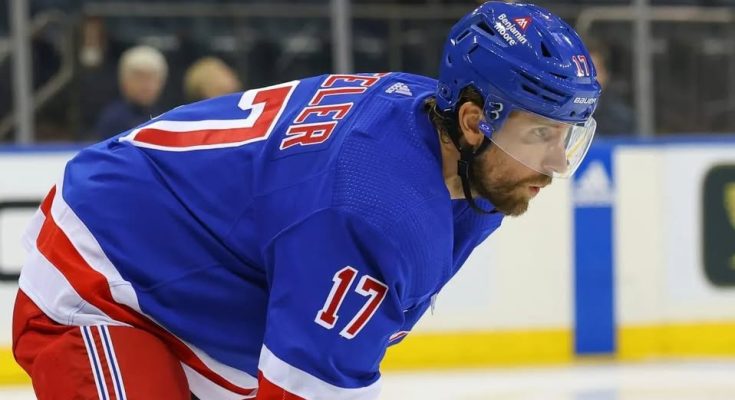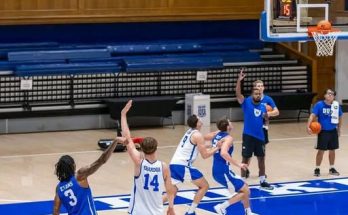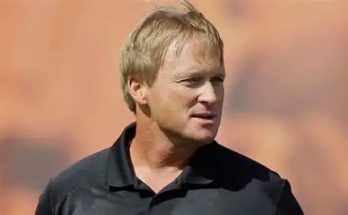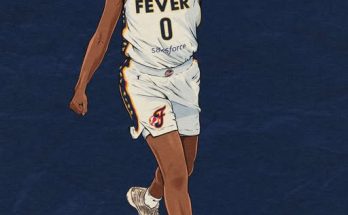Blake Wheeler’s career was never built on fanfare or flashy theatrics. Instead, it was a journey defined by leadership, consistency, and quiet excellence—traits that endeared him not only to teammates but also to fans across every city he called home. So, when Wheeler announced his retirement from the NHL, it came with the kind of dignity and humility one might expect from a player who spent nearly two decades setting the tone in locker rooms across the league. But what took the hockey world by surprise was the raw emotion in his farewell letter addressed specifically to New York Rangers fans, a fanbase he only knew for one brief season. In those carefully chosen words, Wheeler didn’t just close a chapter; he left behind a lasting imprint on Rangers lore and the NHL as a whole.
After 16 seasons in the National Hockey League, Wheeler officially hung up his skates at age 38, citing the physical and emotional toll the game had taken on him. Yet it wasn’t the toll he emphasized—it was the gratitude. Gratitude for the cities he played in. Gratitude for his coaches and teammates. And most importantly, gratitude for the fans. The most poignant part of his statement came when he addressed the Garden faithful, thanking them for embracing him during what would become the final act of his professional career. It was a short tenure, but one that clearly carried great weight for the veteran winger.
When the Rangers signed Wheeler to a one-year deal in the summer of 2023, the expectation was that he would be a steady veteran presence, someone who could provide leadership in a locker room filled with both established stars and emerging young talent. What no one anticipated was the way Wheeler would not only fit in seamlessly but actually elevate the team culture. Though his on-ice production wasn’t as prolific as in his prime years with the Winnipeg Jets, he brought a stabilizing presence to the third line and often mentored younger players off the ice. His communication, work ethic, and unselfish play quickly earned the respect of both teammates and coaches. Fans noticed too, chanting his name during crucial home games and recognizing that Wheeler’s value went far beyond the stat sheet.
Wheeler’s final season may not have ended with a Stanley Cup parade down Seventh Avenue, but it represented something far more personal: closure. For a player who had been bought out by the Winnipeg Jets, the organization where he spent the bulk of his career and wore the “C” for over a decade, the move to New York was both symbolic and strategic. It gave him one last opportunity to contribute meaningfully while soaking in the unmatched energy of Madison Square Garden. And in that one season, Wheeler found something he hadn’t fully expected—redemption, community, and peace.
In his statement, Wheeler wrote, “To the Rangers fans—thank you. You welcomed me with open arms and allowed me to be a part of something truly special, even for just one season. I’ll never forget the roar of the Garden or the pride of wearing that jersey.” The simplicity of the message belied its emotional weight. For a player who had endured highs and lows, contract negotiations, trades, injuries, and playoff heartbreak, the ability to end his career on his own terms—and with the respect of one of the most passionate fanbases in sports—was no small thing.
While Wheeler’s tenure in New York was brief, it seemed to encapsulate the best parts of what makes hockey such a deeply human sport. Here was a veteran, no longer chasing numbers or legacy, but playing for the love of the game and the chance to belong one last time. His commitment to the team, willingness to embrace a reduced role, and effort in every shift served as a powerful example for the younger Rangers players watching him. And now, with the announcement of his retirement, Wheeler’s role evolves from player to mentor, a figure of inspiration whose story can guide the next generation.
Throughout his career, Wheeler amassed over 900 points, played in more than 1,100 games, and served as a captain longer than most players last in the league. He was drafted fifth overall by the then-Phoenix Coyotes in 2004 but never played for them, choosing instead to begin his NHL career with the Boston Bruins. It wasn’t until he was traded to the Atlanta Thrashers—who soon became the Winnipeg Jets—that he truly blossomed into an elite playmaker and locker room leader. For over a decade, he served as the face of the Jets franchise, often shouldering the burden of leadership during both successful playoff runs and rebuilding years.
That chapter ended unceremoniously when the Jets bought out the final year of his contract in 2023. Many athletes might have walked away then, feeling slighted or disillusioned. But Wheeler chose differently. He signed with the Rangers not just for another shot at the Cup, but because he believed he still had more to give. And in the end, that belief was proven right—not necessarily in goals and assists, but in the immeasurable ways a veteran can impact a team.
His exit from the game is likely to spark conversations about his legacy. He may never have won a Cup or earned a Hart Trophy, but Wheeler’s career stands as a testament to longevity, resilience, and leadership. He represented a rare breed of NHL player: the kind who made every team he played for better, both on and off the ice. Fans across the league—especially in Winnipeg and New York—recognize that, and many took to social media to share their appreciation for the retiring forward. Former teammates, broadcasters, and opponents also offered tributes, each one echoing the sentiment that Wheeler was one of the most respected players of his era.
In a league where careers can end without warning or ceremony, Wheeler was fortunate to write his own final chapter. His statement to Rangers fans wasn’t just a goodbye—it was a love letter to the sport and to a city that embraced him during a transformative moment. “Hockey has given me everything I could have ever hoped for and more,” Wheeler wrote. “To be able to end my career in New York, surrounded by passionate fans and incredible teammates, was the perfect sendoff. I’ll be a Ranger for life.”
Those words now hang in the hearts of Rangers fans, who perhaps didn’t expect to grow attached to a veteran on a one-year deal—but did anyway. Because Blake Wheeler represented something rare and beautiful in sports: grace in transition, humility in success, and character in every stride. The NHL will move on, as it always does, but it will be just a little less rich without Wheeler patrolling the right wing.
As for what’s next, Wheeler hasn’t announced any concrete plans. He hinted at spending more time with family and perhaps getting involved in the game in a non-playing role. Coaching, player development, or broadcasting would all suit him well given his articulate nature and deep understanding of the sport. Wherever he ends up, one thing is certain—he won’t be forgotten. Not in Winnipeg, where he built his legacy. Not in Boston, where he started. And certainly not in New York, where he finished with dignity and left the ice to a standing ovation.
In a league driven by youth, speed, and constant change, Blake Wheeler reminded us that there is still immense value in wisdom, leadership, and heart. His career may be over, but his story is not. And for fans of the game—especially those at Madison Square Garden—it’s a story they’ll carry with them long after the final buzzer.



